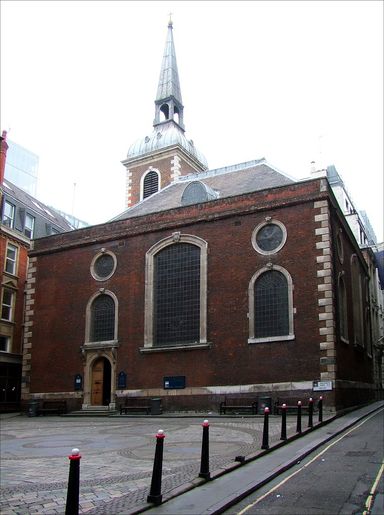The Word of the Month for August is VALUES
VALUES: plural noun. The principles or moral standards held by a person or social group; the generally accepted or personally held judgement of what is valuable and important in life. (The Oxford English Dictionary)
We hear mention of moral values, Victorian values, British values, and lots of other values: but what do they mean?—and what should our values be?
In 1941, William Temple, by then Archbishop of York and soon to become Archbishop of Canterbury, convened a conference at Malvern to debate what our society might choose to be like after the Second World War. A set of ‘principles’ was discussed: and in 1942 Temple published Christianity and Social Order, in which he discussed such principles as ‘freedom … social fellowship … service … the family as the primary social unit … the sanctity of personality … the principle of fellowship’.[1] It is these values that substantially informed the welfare state proposed by the Beveridge Committee in 1942 and implemented by the UK Government after 1945. (It was Temple who invented the phrase ‘welfare state’.[2])
Fifty years later, Prime Minister John Major called on the nation to return to
the old values of neighbourliness, decency and courtesy … to self-discipline and respect for the law, to consideration for others, to accepting responsibility for yourself and your family. [3]
In its ‘Prevent’ strategy, published in 2011, the Government listed as ‘values’ ‘universal human rights, equality before the law, democracy and full participation in our society’ [4] and then offered a second list of ‘mainstream British values’: ‘democracy, rule of law, equality of opportunity, freedom of speech and the rights of all men and women to live free from persecution of any kind … democracy, the rule of law, individual liberty and the mutual respect and tolerance of different faiths and beliefs’.[5] And then in 2014 the Government decided that it wanted the ‘British values’ of ‘democracy, the rule of law, individual liberty, and mutual respect and tolerance of those with different faiths and beliefs’[6] to be taught in schools.
Questions
- Which of the values listed above would you regard as British values?
- Would you add any values to the lists?
- What are your values?
- How do your values differ from those listed above? And why?
Values in the New Testament?
In his letter to the church in Galatia, Paul writes this:
The fruit of the Spirit is love, joy, peace, patience, kindness, generosity, faithfulness, gentleness, and self-control. (Galatians 5:22–23)
Question
- Is this a set values that we can live by?
In one of his sermons, Jesus said this:
Blessed are the poor in spirit, for theirs is the kingdom of heaven.
Blessed are those who mourn, for they will be comforted.
Blessed are the meek, for they will inherit the earth.
Blessed are those who hunger and thirst for righteousness, for they will be filled.
Blessed are the merciful, for they will receive mercy.
Blessed are the pure in heart, for they will see God.
Blessed are the peacemakers, for they will be called children of God.
Blessed are those who are persecuted for righteousness’ sake, for theirs is the kingdom of heaven. (Matthew 5: 3–10)
Luke’s Gospel records a rather different version of the sermon:
Blessed are you who are poor, for yours is the kingdom of God.
Blessed are you who are hungry now, for you will be filled.
Blessed are you who weep now, for you will laugh. …
But woe to you who are rich, for you have received your consolation.
Woe to you who are full now, for you will be hungry.
Woe to you who are laughing now, for you will mourn and weep. (Luke 6:20–25)
Are these sets of values, or are they something else? In his stories, healing miracles, and sermons, Jesus spoke about the Kingdom of God: a new era of peace and justice that God would bring about. (Here in the City of London we might prefer to call what Jesus hoped for the City of God.) Jesus asked his followers to pray that the Kingdom of God would come ‘on earth as in heaven’ (Matthew 6:10): and the sermons ‘Blessed are the poor in spirit …’ and ‘Blessed are you who are poor …’ might be descriptions of how the Kingdom of God would overturn this world order and usher in something very different.
Questions
- Do Jesus’ sermons offer us sets of values, the promise of a future Kingdom of God, or both?
- If these are values, then can we live by them today?
- How do your values differ from these values?
- The Kingdom of God will come as a gift, so it demands a generous response. As Jesus puts it: ‘You received without payment; give without payment’ (Matthew 10:8). The New Testament calls this generous giving ‘grace’. Might this generous giving be the only value that matters?
- If so, might all of the other values represent a second best?
Final questions
- Which of all of these values can guide us in our personal lives?
- Which of all of these values can guide the businesses and other organisations that we might work for?
Notes
Scripture quotations are from the New Revised Standard Version Bible: Anglicized Edition, copyright © 1989, 1995 National Council of the Churches of Christ in the United States of America. Used by permission. All rights reserved worldwide.
[1] William Temple, Christianity and Social Order, Penguin: 1942, and Shepheard-Walwyn/SPCK, 1976, chapter 5.
[2] Simon Lee, ‘A Balliol quartet and the welfare state: Temple, Beveridge, Tawney and Toynbee’, Theology, 125 (4), 2022, 252–57.
[3] Patrick Wintour and Stephen Bates, ‘Major goes back to the old values’, The Guardian, 9 October 1993, https://www.theguardian.com/politics/1993/oct/09/conservatives.past.
[4] HM Government, ‘Prevent Strategy’, Cm 8092, 2011, p.1, https://www.gov.uk/government/publications/prevent-strategy-2011.
[5] HM Government, ‘Prevent Strategy’, Cm 8092, 2011, p.34, https://www.gov.uk/government/publications/prevent-strategy-2011.
[6] UK Government, ‘Promoting fundamental British values as part of SMSC in schools’, 2014, https://www.gov.uk/government/news/guidance-on-promoting-british-values-in-schools-published
